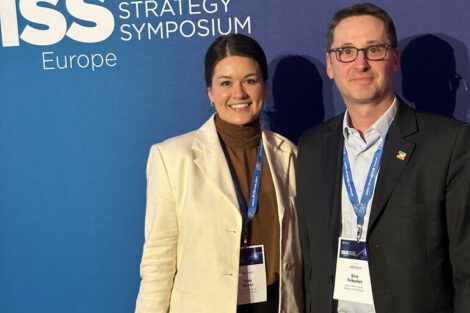Europe’s leaders together with the ECB (European Central Bank), have some fundamental issues to resolve. And some of them have thought of a never-ending boom, good social deeds and peace. When there are financial problems, ECB’s Signore Draghi is going to fix the mess with his money canons, the quantitative easing (QE). Dear electronics specialists, no quality is involved here, this is flooding the markets with money whereby the ECB buys extremely large amounts of assets from banks, etc., thus raising the prices of those financial assets and lowering their yield, while increasing the Eurozone’s monetary base (inflation) and generating extremely risky bubbles. It will take decades to reduce these debts whereby economy is stagnant.
At first, this year presented a bright outlook: a mild winter reduced energy consumption, economic figures were good — or at least sufficient — in leading EU countries such as Germany, France, Italy and Great Britain (still believing in the pound) that handle about 70 percent of Europe’s commercial activities. Germany’s industry works as the driving engine among them, whereas practically all neighboring countries are partnered in different fields. And even the troublesome economies in the south were showing the first signs of recovery.
Now, the ice bucket test follows suit. The crisis in Ukraine has developed into a civil war with support from Putin’s Russia against the West (the old cold war scenario); terrorist organizations such as ISIS, Hamas, Alqaeda, Hezbollah, and their spin-offs have become a serious threat; and the Ebola epidemic in West Africa seems to be on the verge of jumping to other regions. Not only that, the economies in Italy and France are being increasingly plagued by problems therefore weakening the Eurozone’s recovery.
One outcome of the confrontation with Russia has meant that investments are now postponed. The German IFO Institute’s prognosis (a pre-indicator of the future economic situation) has dropped three times in a row, and the purchasing manager’s index has also deteriorated. Europe’s industrial powerhouse facing a downturn? If so, all partnering economies are going to suffer from the same malady. But it’s not all gloom and doom: the majority of German companies (70%) are in a good business mood, though they believe they’ll be short of highly skilled staff soon, that energy costs as well as company taxes are too high.
The ECB’s cheap money is just a first-aid measure when economy has failed, but cannot be a permanent policy over many years. We all know that someone has to pay the bill. Here, it’s a punishment for the economies that have done their homework, people with life insurances and those who saved money and have to make their living from the returns on their savings. Draghi’s shedloads of wonga is merely a sticking plaster on the situation — and next generations need to heal the schlamassel.
Share:









